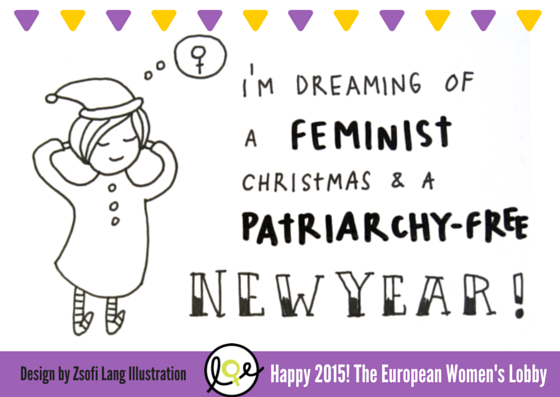[Brussels, 31 May 2011] The Multi-annual Financial Framework (MFF) is the EU’s budget that determines the spending ceilings for each policy category in the EU for a seven-year interval. As the upcoming MFF (2014-2020) is starting to pervade the European agenda, it is important to give voice to some crucial points in this debate. The European Women’s Lobby (EWL), WIDE Network, and the Gender Working Group of CONCORD – the European confederation of Relief and Development NGOs, call on European and national policy-makers to integrate a women’s rights and gender equality perspective in the forthcoming decisions about the scope, priorities, and financing of the post-2013 EU MFF.
Although the EU has a long-standing commitment to gender mainstreaming, equal rights and non-discrimination these priorities also need to be reflected in the upcoming financial framework. A gender-responsive MFF that takes into account the impact of budgetary decisions and allocates sufficient funding for women-specific actions will make the limited budget of the EU more effective. Moreover, this is a step toward reaching the EU 2020 Strategy targets. Gender mainstreaming and equality are also a way to enhance the economic growth and to answer the demographic challenges.
However, these outcomes require political will to prioritise gender equality in budgetary decisions: EU funding for gender equality is decreasing and amounts only to 0.37% of EU spending within the 2007-2013 MFF, and studies show serious gaps in gender mainstreaming in the EU’s financing instruments.
The European Women’s Lobby (EWL), WIDE Network, and the Gender Working Group of CONCORD – the European confederation of Relief and Development NGOs have formulated key proposals for a gender sensitive, accountable and participatory long-term financial plan:
- Make policy priorities of a) sustaining the European Social Model, and b) promoting fundamental rights including women’s rights; make these two priorities visible in budget headings and support them with strong financial instruments and programmes;
- Provide adequate and predictable funding for women’s rights and gender equality through specific programmes/budget lines under fundamental rights and citizenship (including actions targeting violence against women), employment and social policy, education, research and innovation, and external policies;
- Assess the gender impact of the proposed spending priorities, sources of revenue, and governance tools before the MFF is adopted to ensure that the post-2013 MFF is gender sensitive;
- Include in the MFF a commitment to gender-responsive budgeting to ensure that from 2014 onward gender mainstreaming is part of the EU budgetary process from planning to monitoring and evaluation;
- Make gender mainstreaming a horizontal priority in the regulations of all the EU financial programmes and policies beginning in 2014;
- Make EU funding more accessible to civil society organisations at national and European levels and in neighbouring and developing countries, both as promoters of EU-funded projects and as recipients of operative grants.
Access the Joint Statement here.





